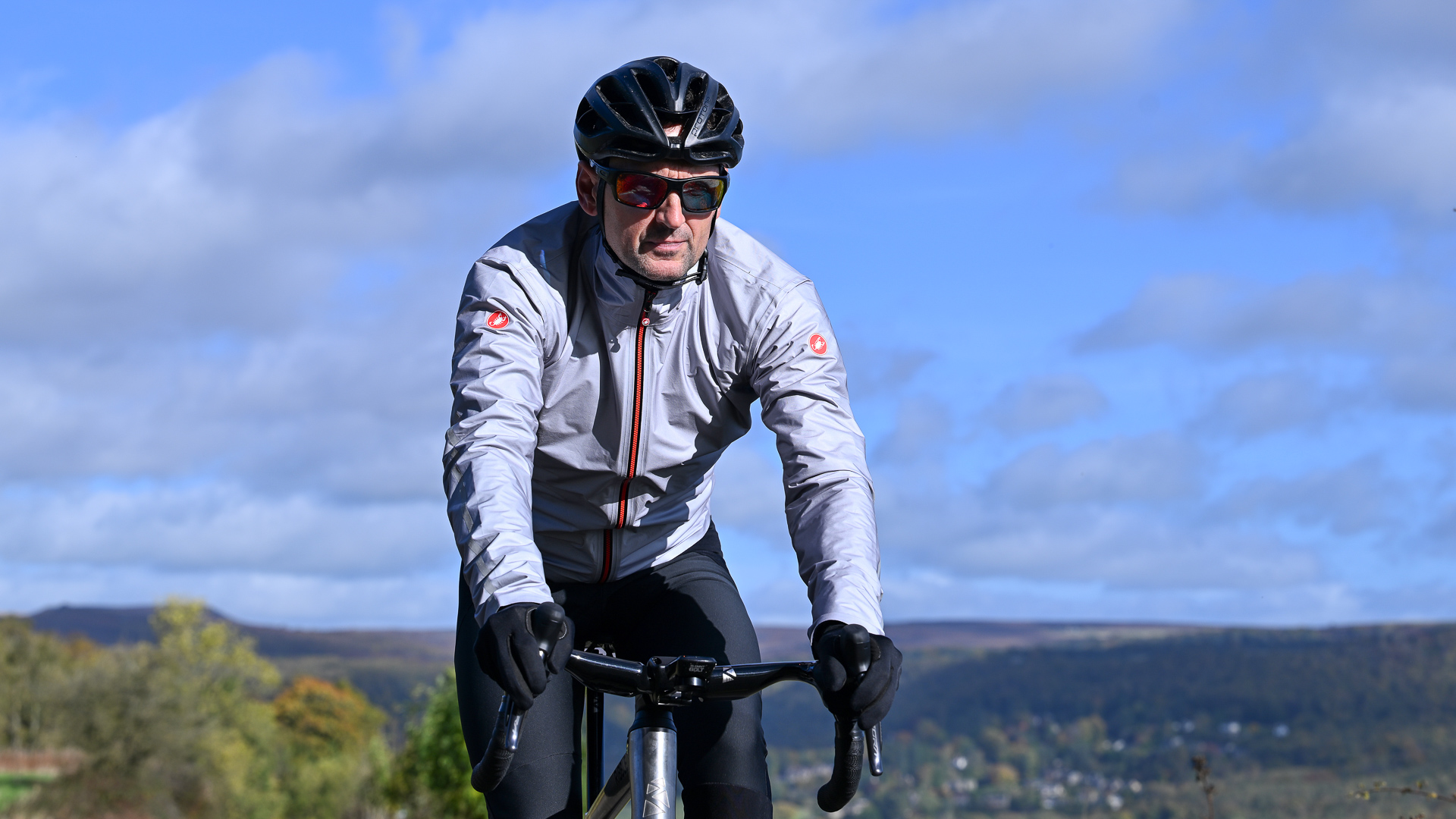
Although the PFAS (polyfluoroalkyl substances) ban that has affected USA and EU manufacturers has seen the demise of many waterproof fabrics and garments, including the much-lauded Gore-Tex Shakedry, there is still sufficient stock of some fabrics for Castelli to offer the Tempesta Lite with Gore-Tex Active Technology for the next few seasons.
In direct contrast to the Castelli Squall Shell which you carry in case you are unlucky with the weather, the Tempesta Lite is the kind of jacket that you put on at the start of a ride and take off if you get lucky with the weather. The branding on the jacket simply says ‘Gore-Tex’, but the swing tag says ‘Gore-Tex Active Technology’, which was the brand’s most breathable fabric before Shakedry, and one which I was a fan of.
There is only one colour option, light grey, for men or women, with men’s sizing from S to 3XL and the women’s version from XS to XL.
Construction
As mentioned, the fabric is Gore-Tex Active Technology, although the difference between the Tempesta Lite and my older Active-Shell jackets seems to be in the face fabric. The original garments had a standard face fabric that was fine when the DWR (durable water repellency) treatment was new, it suffered from wetting out when the treatment wore off which greatly affected breathability. However, this latest version seems to utilise a softer, almost hatched material with some stretch in one direction, but none in the other. Of course, all seams are taped and the YKK zip is water-resistant.
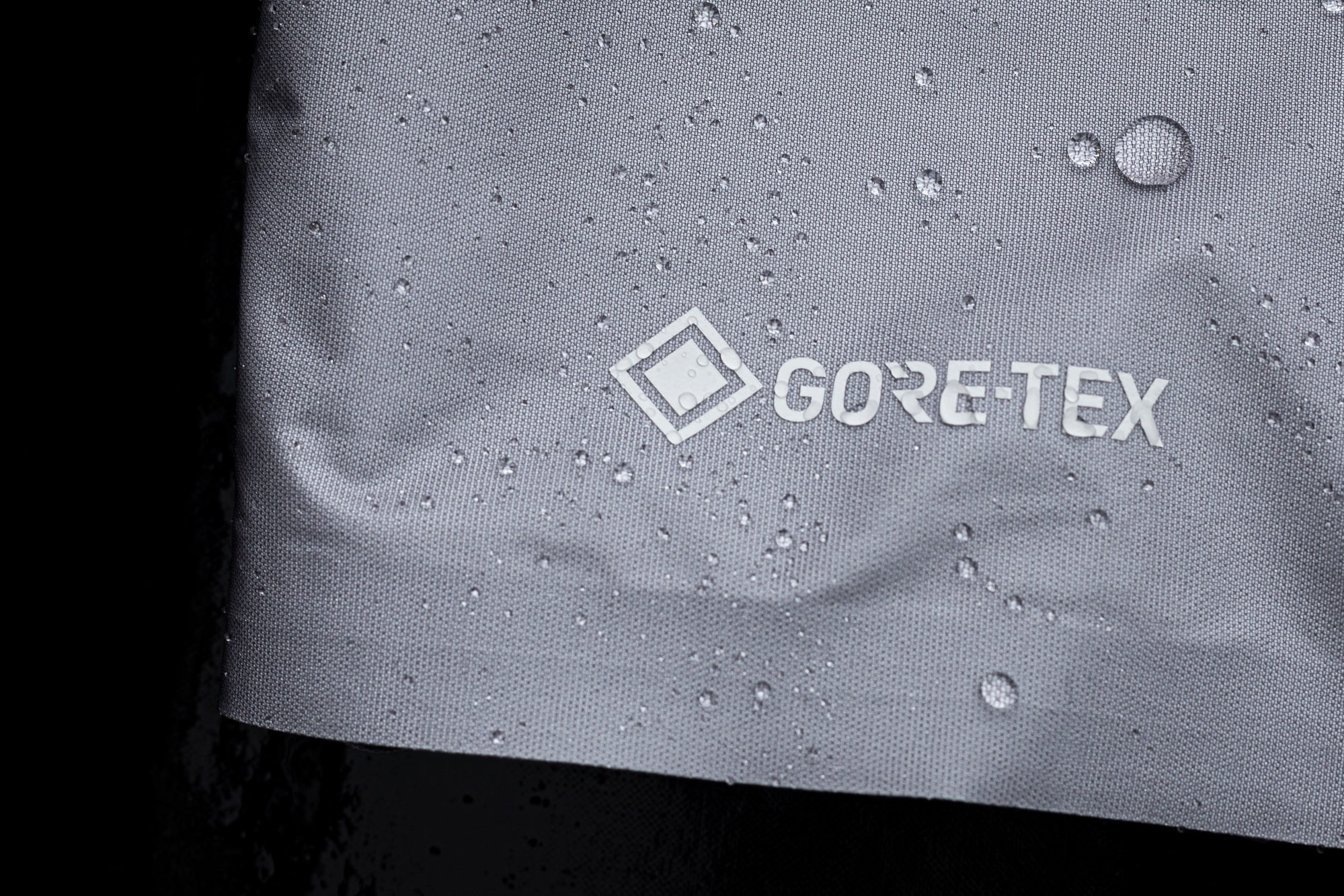
The cuffs are a little odd, with a tapered but elastic-less outer cuff and an inner gasket made from Lycra. Even more eye-catching is the rear of the jacket; there is a slit across the lower back so that you can reach into your jersey pockets and beneath this is a panel of black Gore-Tex Topo fabric. This material appears to serve two functions. Firstly, its horizontal stretch helps the fit of the jacket around the waist, and secondly, the stiffer material prevents the access slot from gaping open and allowing in water.
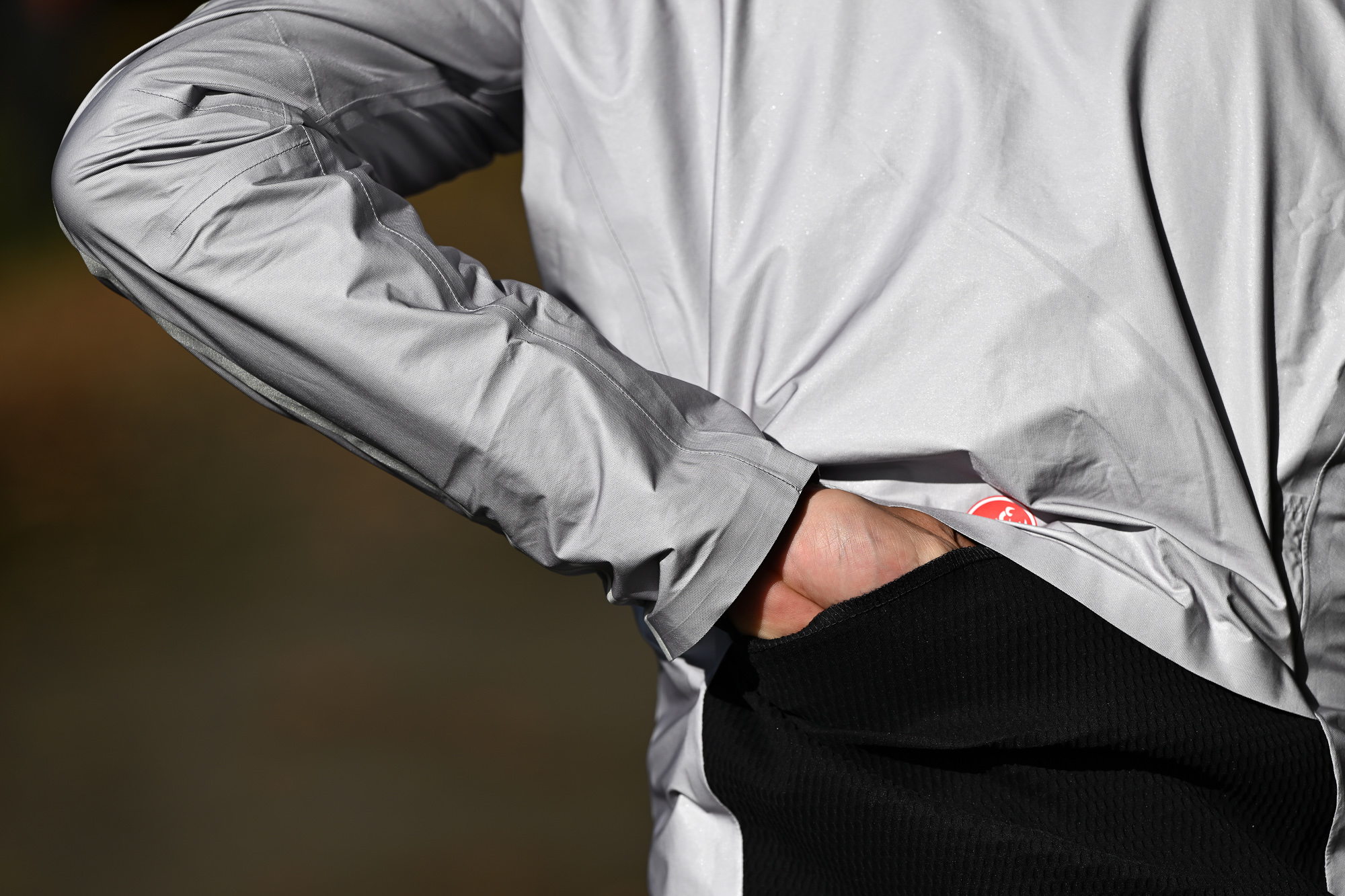
There are long reflective stripes down each arm and, curiously, inside the collar. Finally, it is fantastic that it isn’t black. The light grey isn’t reflective per se, but it has to be more visible than the regulation Shakedry black (except maybe in fog…).
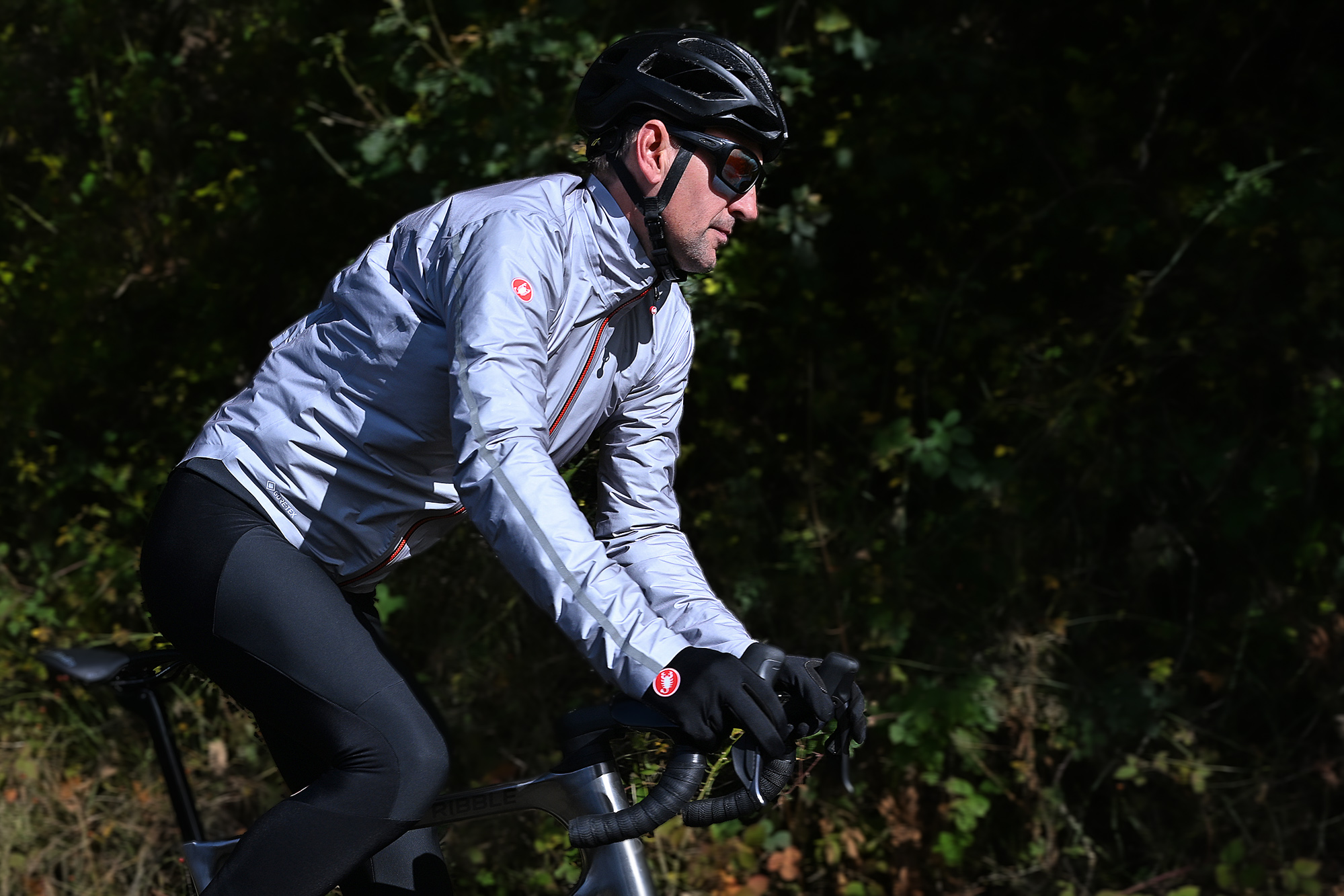
Castelli claims that the jacket weighs 216g, but they are doing themselves a bit of a disservice here, my size large tipped the scales at a very impressive 169g. Packability is reasonable too - tightly rolled it would fit in most jersey pockets although there is no stuff bag or stow pocket so you need to find your own packing method.
The Ride
Despite its low weight, donning the Tempesta Lite certainly feels like you are putting on a waterproof jacket rather than a taped windproof. In part, this is due to the 3-ply nature of the fabric, which, despite its softness and flexibility still feels more substantial than some materials. It also sounds like a proper waterproof, with the rustling that I associate with getting properly togged up for a wet outing, and as the fabric isn’t particularly forgiving I could feel slight dragging when moving despite the super soft C-knit backer. All these factors help towards a feeling of protection and security that lighter jackets don’t provide.
Fit is personal, but I much preferred the cut of the Castelli Squall Shell that I tested recently to that of the Tempesta Lite. The lack of stretch in the Active Technology fabric means that the cut has to be a little more generous in places, to allow for comfort in the riding position, so the overall feel is of an endurance rather than race-orientated fit - think bike packing rather than wet-weather intervals.
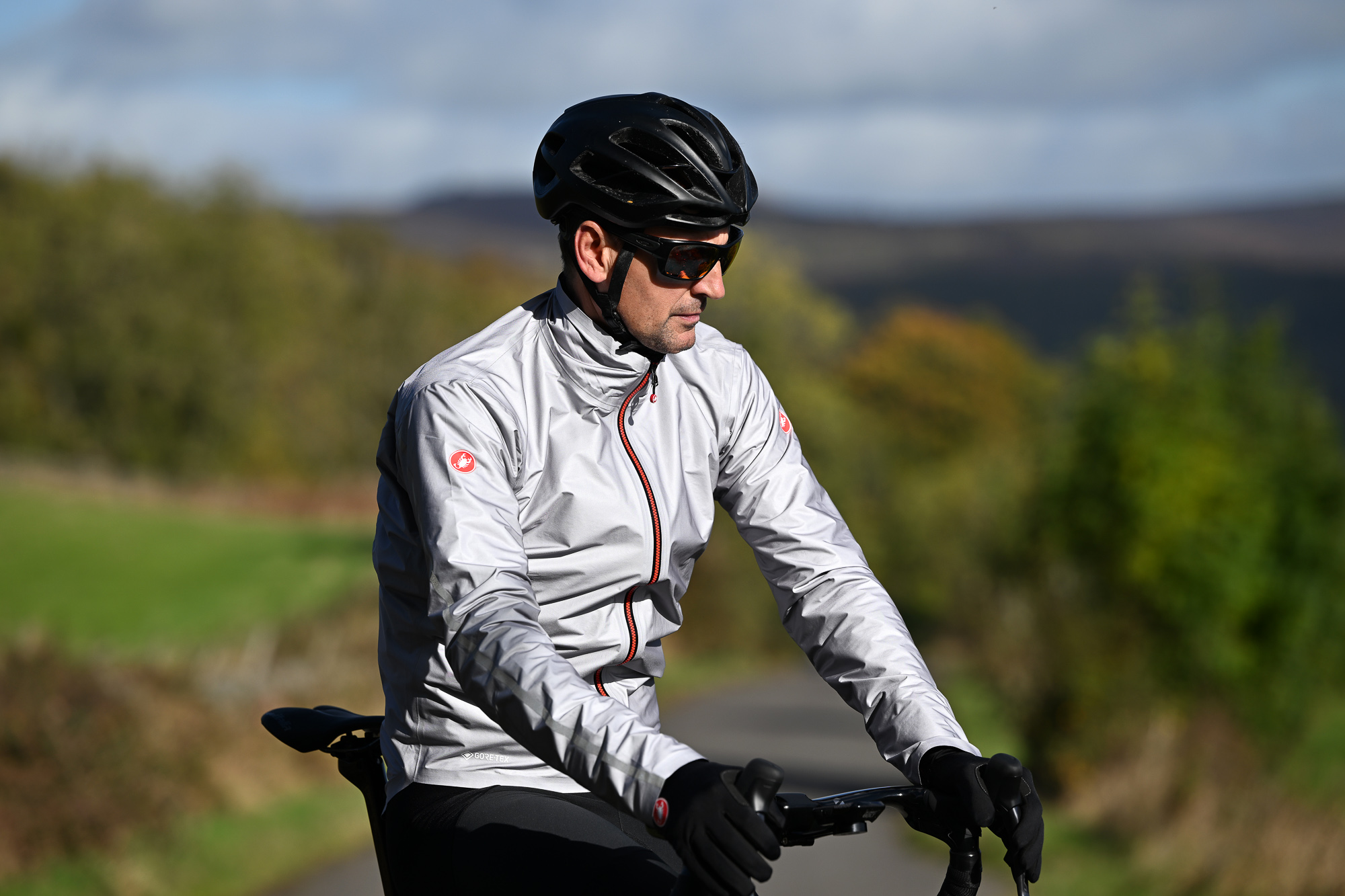
I wasn’t sure what to do with the open sleeves of the Tempesta - force them into my gloves or let them flap about causing drag and sucking in air. The internal Lycra cuff helps a little, but I would much rather have had a simpler, single, elasticated cuff design; my older Active Shell products have normal cuffs so I’m not sure why Castelli has chosen this design for the Tempesta Lite. On the plus side though, the sleeves were plenty long enough even in a stretched-out position on the bike
I was also not particularly keen on the rear pocket access design. I understand the concept, but rooting about through a flap to locate a specific pocket and find a gel, all whilst probably wearing warm gloves seems over-complicated, unnecessary and difficult. I guess it would work more easily in the summer with just mitts on, but then I’d suggest you probably wouldn’t be wearing this jacket as summer shower protection. My preference would be for a two-way zip instead such as on the Espresso Vest which allows quick and easy access without fear of getting your hand caught behind your back in a potential monkey trap. I ended up pulling the rear of the jacket up over the pockets if I needed to access them.
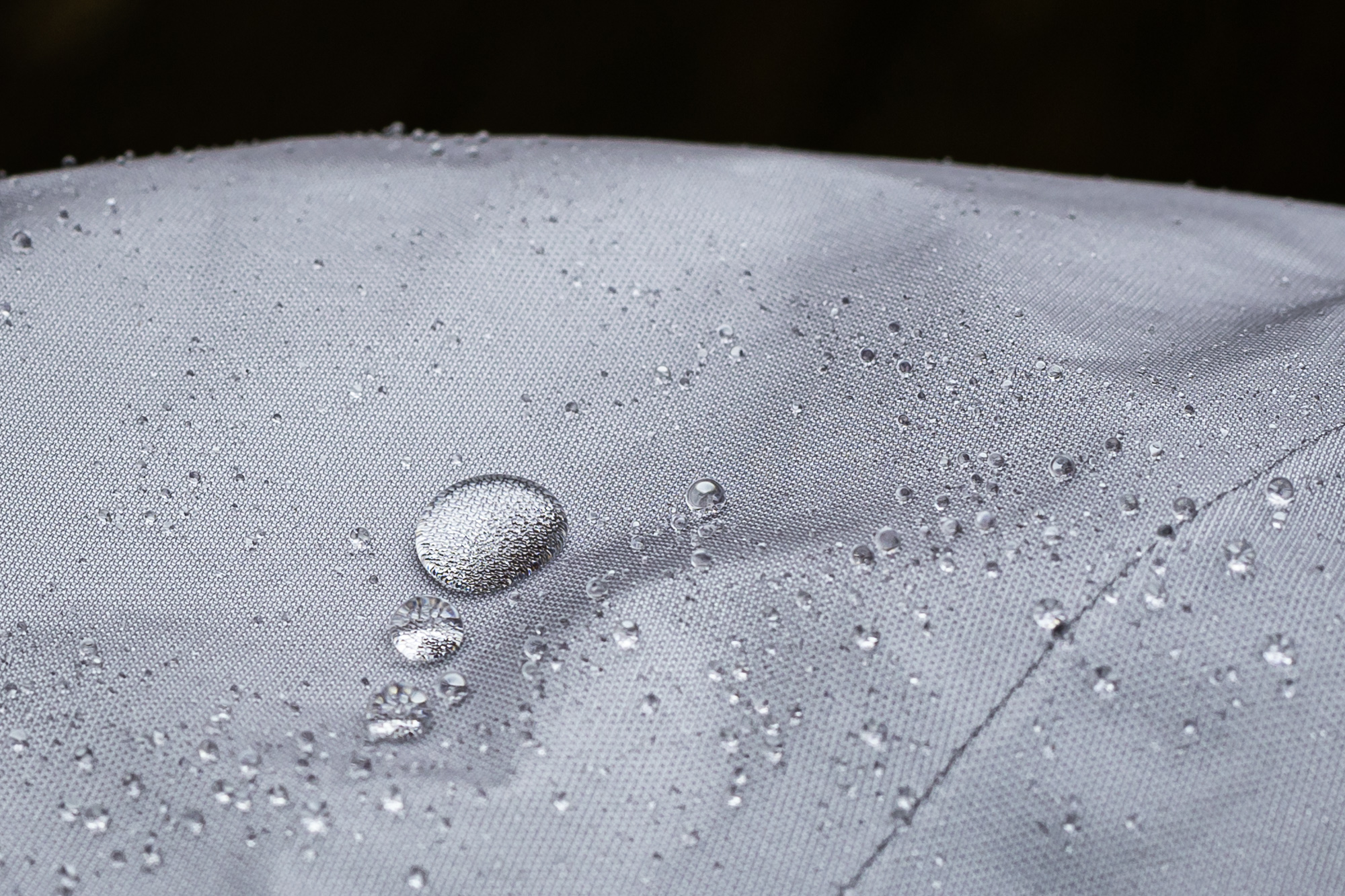
Ultimately, however, the single most important question is a simple one; did the Tempesta Lite keep me dry, both from rain and from my sweat? The answer is yes, it was pretty impressive in its ability to shift my moisture outwards whilst preventing rain from penetrating the fabric. There was no wetting out of the outer, so breathability remained high even after a prolonged soaking and although I don’t think that it reaches Shakedry’s abilities, it is a very different product that could happily co-exist with the lighter fabric.
Value and conclusion
I’ve resisted mentioning the price until now, but I can put it off no longer. The Tempesta Lite has an RRP of £350. It is far from Castelli’s most expensive waterproof (the £450 Slicker Pro has that honour), but that is still a huge amount of cash for most people to spend on a jacket that they hope they won’t have to wear much.
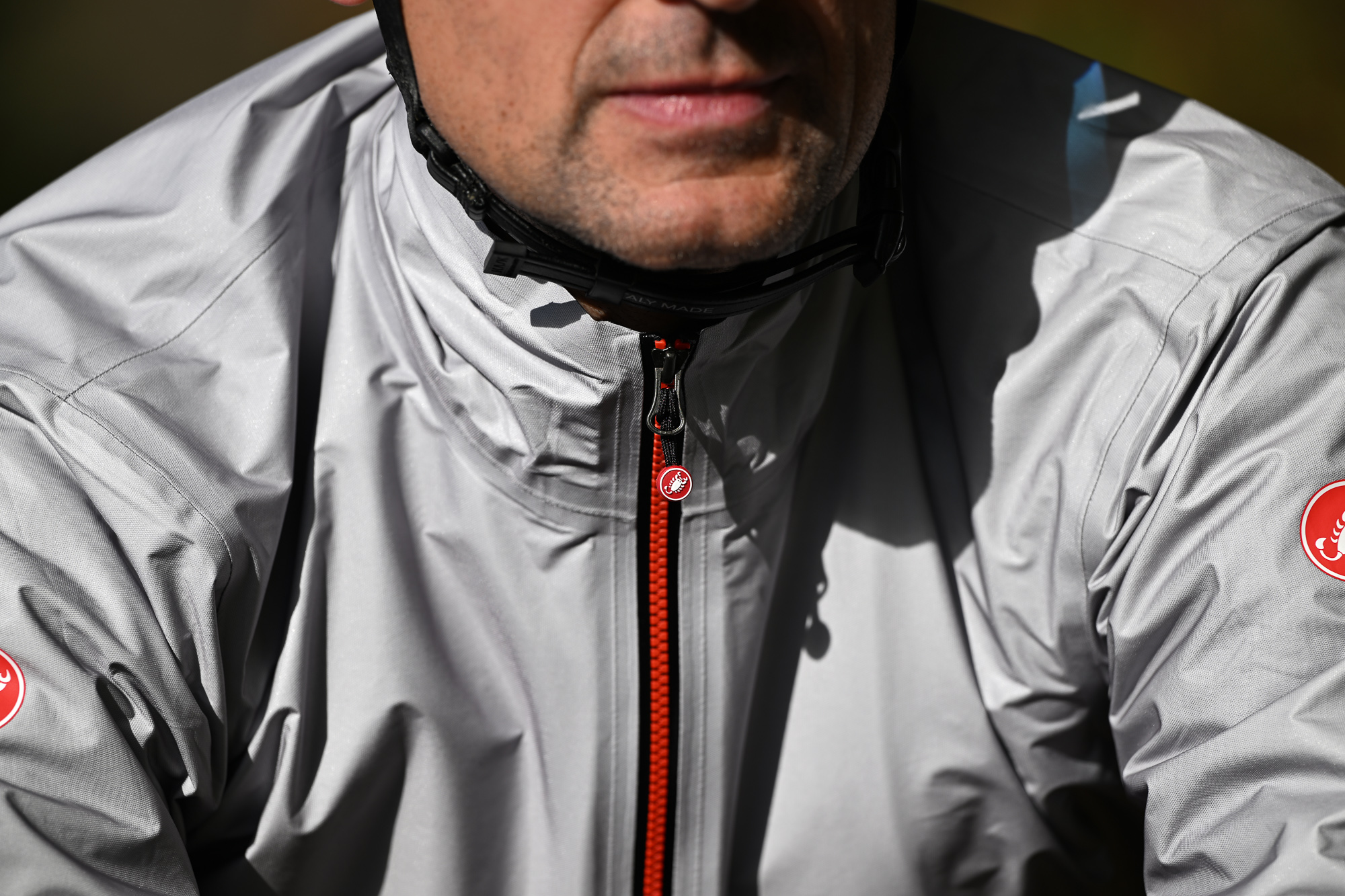
The performance is excellent in terms of breathability and waterproofness in sustained wet conditions, but unless you consistently spend long periods in the rain Castelli and other brands have cheaper products that will perform adequately. Equally, I can’t imagine even the most well-heeled commuter happily spending that kind of cash on a daily wear jacket that is exposed to the worst road grime, spray and rain, so its market might be rather limited. As suggested above, the potential buyers might be bikepackers, audaxers and other long-distance riders for whom longer-term protection is a higher priority than race performance.
Its low weight and wet-weather abilities are impressive, but at £350 you’d expect nothing less.







